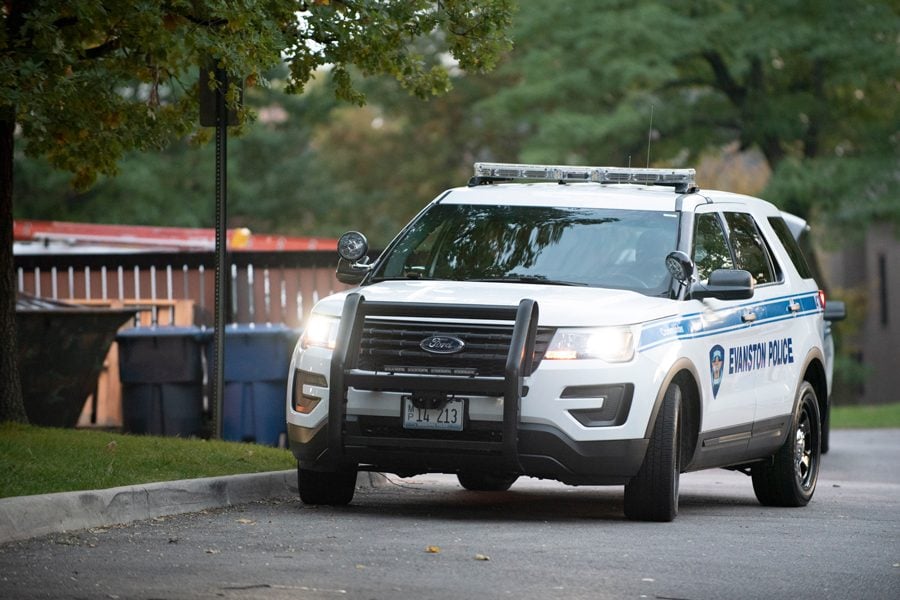A new Illinois law cracks down on distracted driving
Daily file photo by Colin Boyle
An Evanston Police Department vehicle.
September 26, 2019
In the past three months, Evanston police officers issued over 40 percent more tickets on the road under a new Illinois law cracking down on texting and driving.
Illinois lawmakers passed the legislation last year, changing the status of a first texting-and-driving offense from a nonmoving violation to a moving violation. If a driver receives three moving violations in a 12-month period, they could see their license suspended.
Though the Evanston Police Department didn’t train officers differently since the law went into effect on July 1, the number of tickets has increased to 606, compared to 350 in the same time period prior to the law.
Illinois Secretary of State Jesse White said in a statement that texting while driving is considered one of the most deadly forms of distracted driving. A motorist takes their eyes off the road for an average of five seconds when sending or reading a text, according to the National Highway Traffic Safety Administration. At 55 mph, the driver would travel blindly for the length of a football field.
According to EPD Sgt. Tracy Williams, after an officer issues a ticket, the violator has three options: plead not guilty and go to court; spend $210 to go to driving school; or plead guilty, pay $164 and receive a moving violation on their license.
If a driver chooses to go to court, the police department sends the ticket to Cook County where the minimum fine is $75 plus a court fee of $254.50. Before the law, the department processed texting violations locally, costing only $75, Williams said.
In his statement, White said he hopes more people will be deterred from texting while driving if the first offense becomes a violation rather than a warning
“With the increased use of technological devices, distracted driving has become a serious problem on the roads of our state and throughout the nation,” he said. “This important law will make our roads safer. No driver should be texting while driving.”
The enforcement may vary across different police precincts, but Illinois State Police Sgt. Jacqueline Cepeda said her department “regularly and actively” enforces this law, regardless of the penalties and fines associated with the offense.
Illinois police will continue to focus their attention on the primary factors that contribute to fatal traffic crashes, Cepeda said. The four primary causes — which Cepeda called the “Fatal Four” — include driving under the influence, speeding, failure to wear a seat belt and distracted driving. Texting while driving makes drivers 23 times more likely to be involved in a crash.
“Our hopes are always to have the public’s voluntary compliance,” Cepeda said. “But as always, we will continue to enforce all laws to keep all members of the public safe while they travel on Illinois roadways.”
Email: [email protected]
Twitter: @kalenluciano


